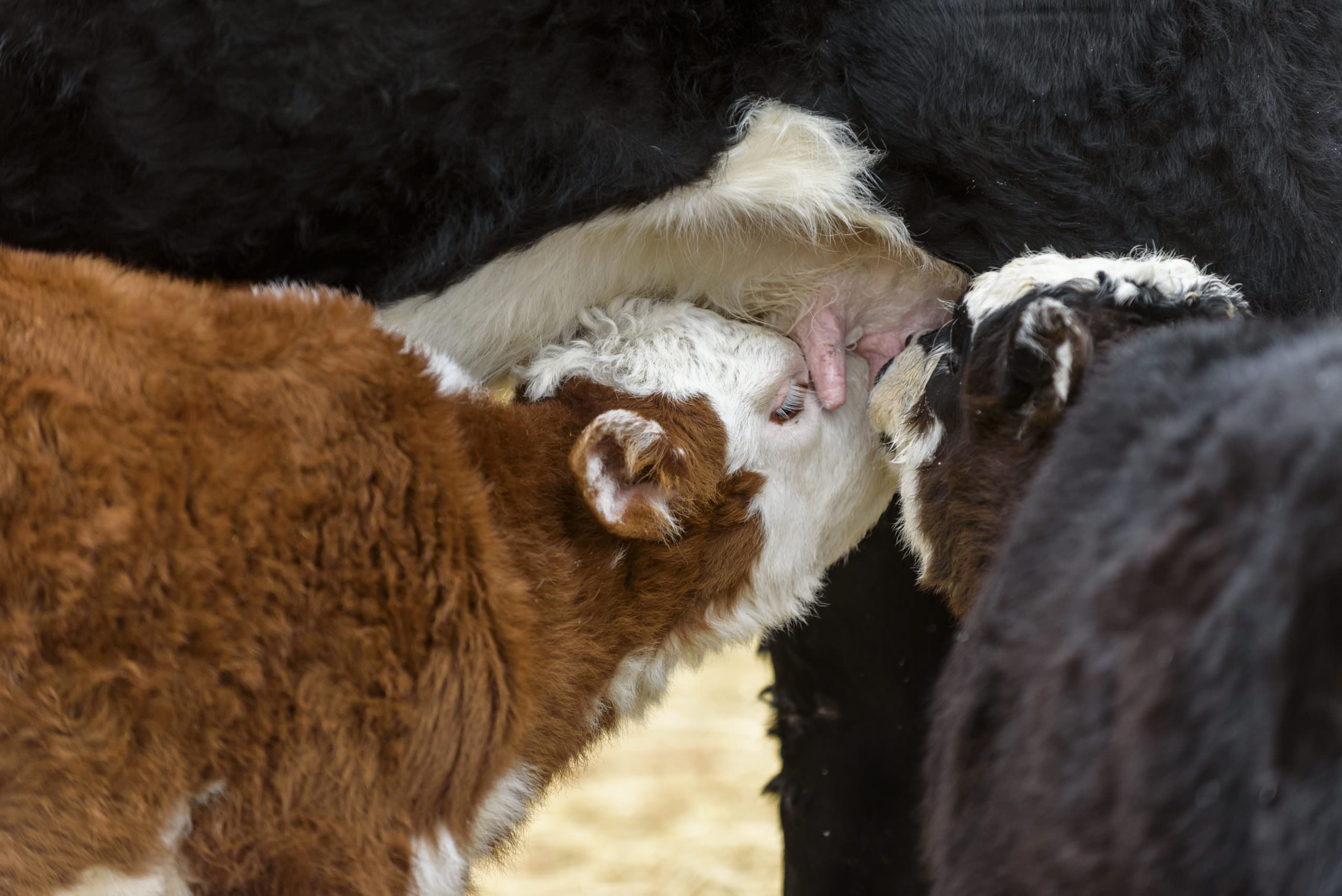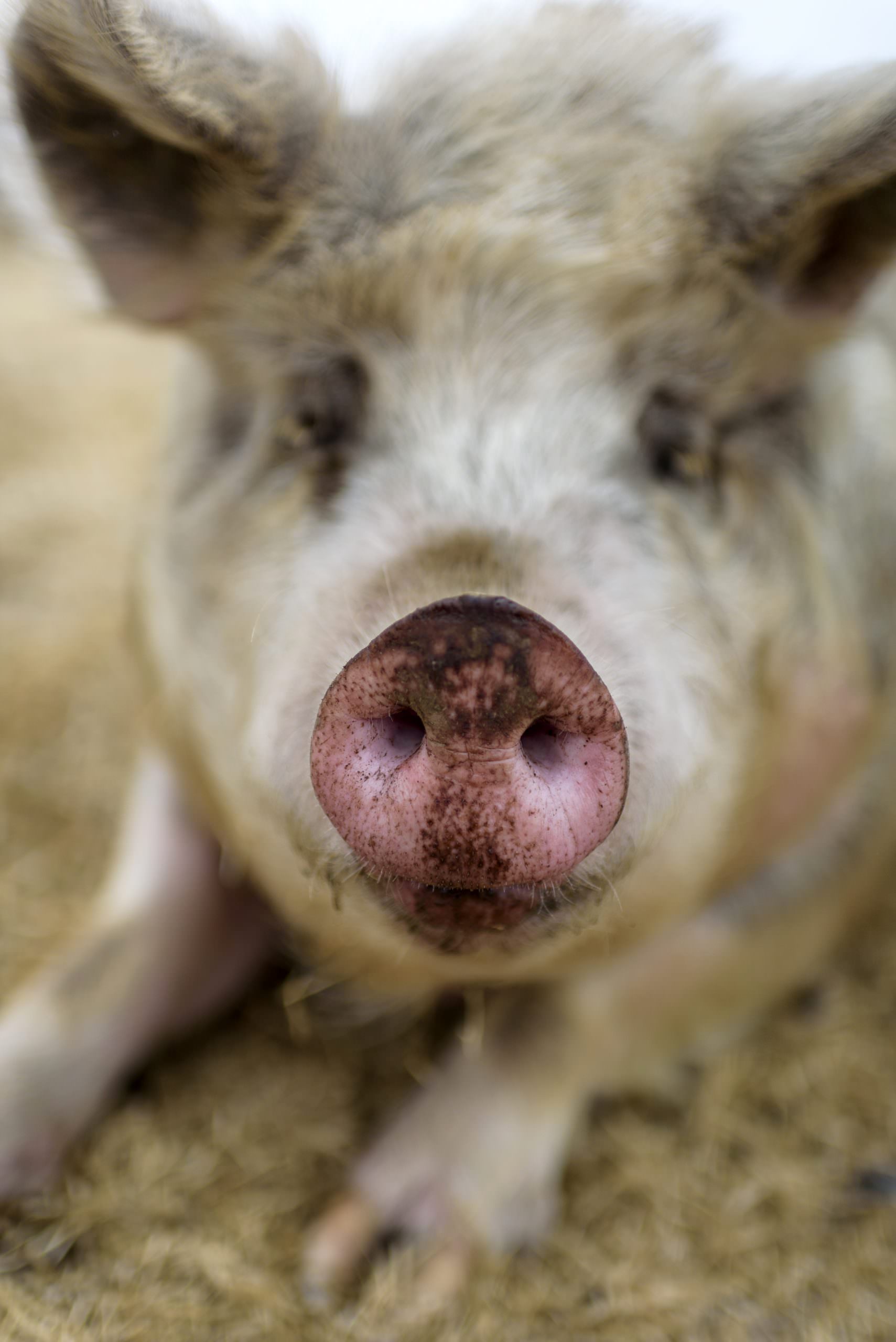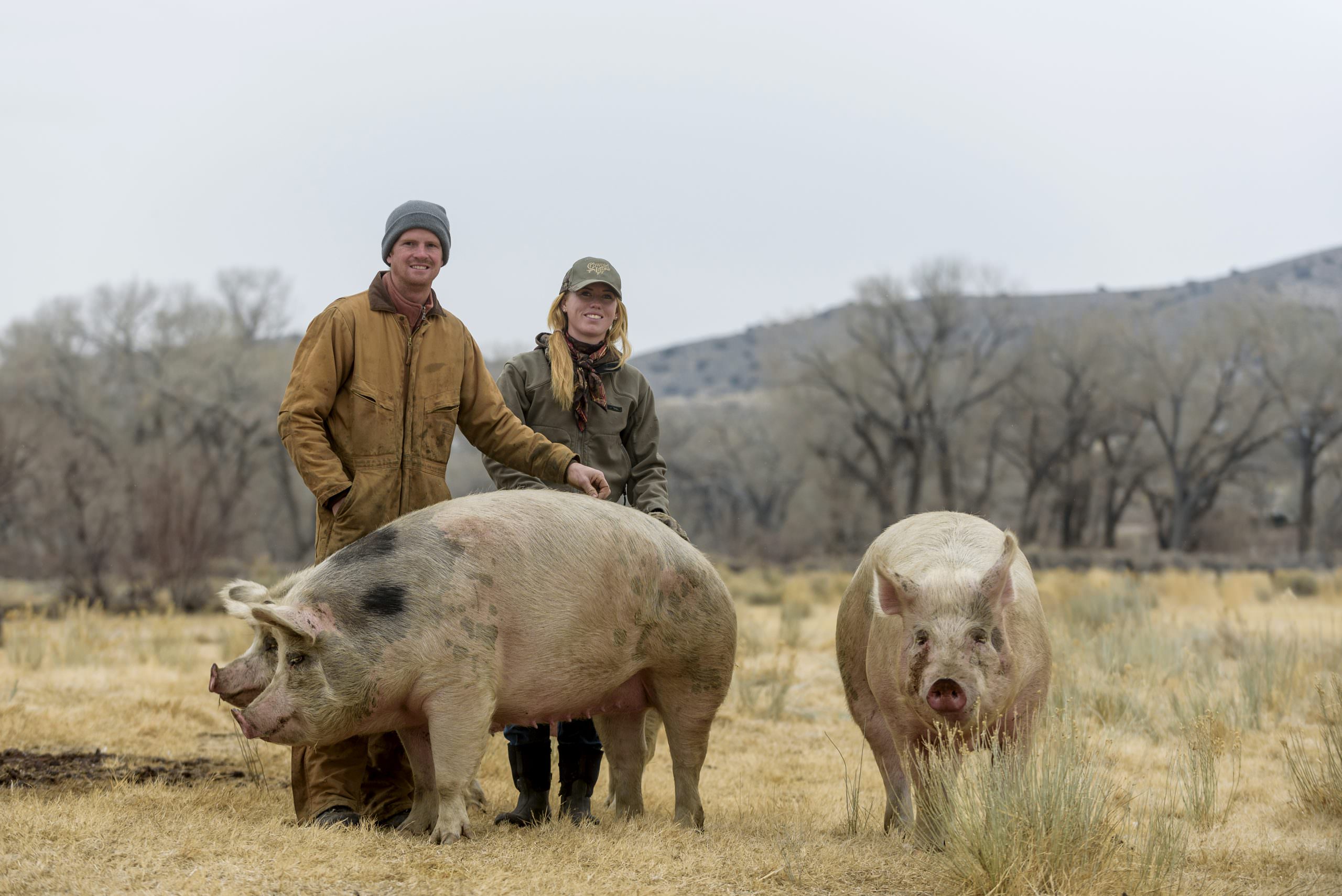Young farmers carry on the family.
On a brisk December morning, Casey Sipe stands on frozen grass as a 475-pound sow named Peaches nuzzles his leg. He scratches her thick hide and she grunts approvingly.
Down the road, in a newly built, solar-powered farm stand, his wife, Rachel Sipe, helps a customer choose a top sirloin steak. The 23-year-old is the third generation in her family to raise livestock on these 600 acres in Carson City. The land has been used for agriculture since the late 1800s.
“It’s been a family business, and I’m an only child, so if it was going to keep going, that meant I had to go into it,” Rachel says. “It’s just something I love. I love it out here. I love our animals, and I love feeding people.”
Happy livestock, happy customers

Two calves nurse from a mother at Eagle Valley Farm. This is a rare occurrence typically seen only with a new mother
After marrying Casey, whom she met at Carson High School, the couple continued helping Rachel’s dad run his calf-cow operation, utilizing a method of raising beef cattle in which a permanent herd of cows produces calves that are later sold to other producers.
But three years ago, the Sipes decided to start their own operation, Eagle Valley Farm, on the same land, raising grass-fed beef and selling it directly to the consumer. Soon after, the couple added pigs, goats, chickens, ducks, geese, and goats.
With enviable views of the snow-capped mountains in the distance, chickens and turkeys peck around the field with the cows, ultimately finding their way into an old feed-truck-turned-coop parked in the pasture. In the next pasture over, five gigantic breeding sows are asleep on their sides near a pond. Clearly, all of the animals are free range.
“We had a conventional pig pen, but they just kept escaping, and they were so happy that we started leaving them out there. Then we got the chickens, and eventually everything just got loose,” Casey says with a laugh.
The animals’ happiness is important to the Sipes, a fact made apparent not only by their free-range method of pasturing, but also in their interactions with the animals.

A goat takes a gander at Rachel Sipe
“People really are becoming interested in where their food is coming from, who is growing it, and how it’s being grown,” Rachel says. “It doesn’t necessarily mean they are worried about organic certification — we get that question a lot — but I explain to people that we care more about the animals’ welfare and how we are doing things rather than getting that USDA label on there. People seem to be really OK with that. They want to come out here and see their beef, see the chickens, see the pigs, and make sure they have a good life, which is all we’re trying to do, too.”
The Sipes feed their cows and chickens with local products that ultimately would have ended up in a landfill. They source stale bread from Franco Baking Co. in Sparks, damaged fig bars from Nature’s Bakery in Carson City, and spent grain from The Fox Brewpub in Carson City. It’s a part of their mission to be as sustainable as possible.
“(The animals) really enjoy it. That diet variation also makes for a really good final product,” Rachel says.
“We think everybody is pretty happy out here,” Casey adds. “They have an enjoyable life, even if they’re going to be eaten. They really get to experience life, have fun, and live in a nice environment.”
Bright future

Peaches is a 475-pound sow at Eagle Valley Farm
Soon, the Sipes plan to move out of their fifth-wheel trailer on the property and build a tiny home. They hope to hire an employee or two to help out with the workload, and, in a few months, the newest additions to the farm, the goats, will be ready to head to the abattoir for harvest.
“We have a really good customer base, and I just want to keep growing this place,” Rachel says. “I want to have a productive business to ensure that this land will stay open space forever.
“I think there’s a really good future to be had here in agriculture,” she adds. “You’re not making the best living, and it’s hard work, but it’s fulfilling. I think that’s what matters in the long run — being happy. And it’s hard not to be happy out here.”
Claire Cudahy is a Zephyr Cove-based writer. She very much enjoyed meeting the farmers and animals at Eagle Valley Farm, though, if she’s being totally honest, Peaches, the 475-pound pig, freaked her out a bit. You can reach her at Clairecudahy@gmail.com.
Eagle Valley Farm
4900 Carson River Road, Carson City
775-233-4727 • Find Eagle Valley Farm on Facebook
Eagle Valley meat and eggs are available at its farm stand, 10 a.m. – 4 p.m. Sat. The farm’s goods also can be purchased at the Carson City Farmers’ Market or delivered in Carson City for purchases greater than $35.
Eagle Valley Farm Country Gravy
(courtesy of Rachel and Casey Sipe, owners, Eagle Valley Farm in Carson City. Serves 3 – 4)
1 pound Eagle Valley Farm country sausage
3 tablespoons flour
2½ cups whole milk
Cook country sausage in cast-iron skillet until well browned. Next, mix in flour and allow to cook for about 1 minute. Slowly add whole milk and simmer roughly 10 minutes, stirring frequently. Season with salt and pepper to taste, and serve hot over your favorite biscuits!


